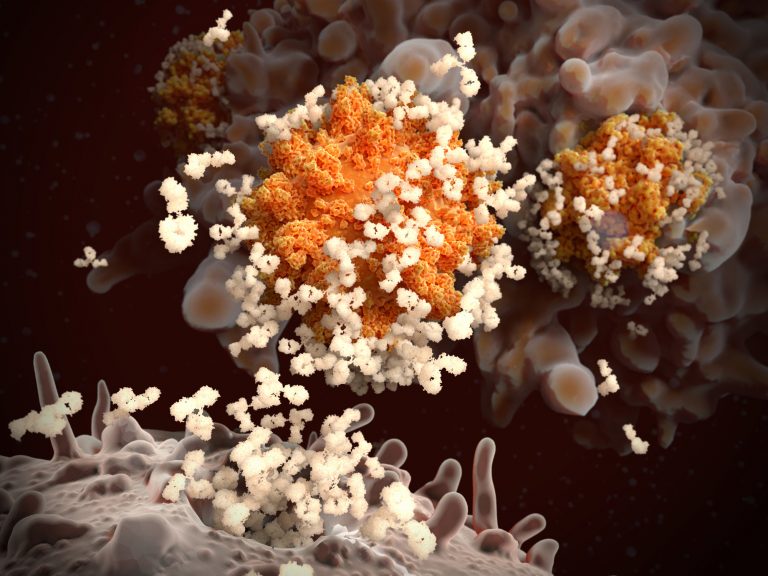
A National Institutes of Health Phase III trial of a long-acting antibody combination therapy developed by AstraZeneca for treating severe COVID-19 is now recruiting patients.
AZD7442 is a combination of two long-acting antibodies developed from the serum of patients who recovered from SARS-CoV-2 infection. The antibodies were originally discovered at Vanderbilt University Medical Center and licensed, to the UK-based big pharma in June 2020. In early trials they showed good anti-SARS-CoV-2 activity.
This study forms one part of Accelerating COVID-19 Therapeutic Interventions and Vaccines (ACTIV), a novel, fast clinical trial program organized by the National Institutes of Health (NIH) and the Foundation for the National Institutes of Health (FNIH).
The idea behind the ACTIV trial program is that multiple therapies can be tested within the same trial protocol over time (and dropped if not effective) and compared with the same placebo group without having to restart the trial each time.
ACTIV is split into several sections depending on the type of therapy being tested and patient characteristics. ACTIV 1 is testing immune modulators such as infliximab and abatacept in combination with the antiviral drug remdesivir. ACTIV 2 is looking into therapies such as monoclonal antibodies but focusing on patients with less severe disease who are not hospitalized and assessing if such treatments can reduce severity and duration of symptoms.
ACTIV 3, which the AstraZeneca antibody combination trial forms part of, is testing monoclonal antibodies and other therapies for hospitalized patients with COVID-19. The AstraZeneca antibody combination is the fourth arm of ACTIV 3 to be launched so far. One arm was dropped due to limited efficacy predictions (an antibody developed by Eli Lilly and Co. in partnership with AbCellera Biologics).
The other two began in December and are being tested concurrently with the AZD7442 combination therapy. Both the other arms are also assessing antibody therapies – VIR-7831, developed through a partnership between GSK and Vir Biotechnology, and BRII-196 and BRII-198, manufactured by Brii Biosciences.
Patients included in ACTIV 3 will be hospitalized with COVID-19 and have less than 13 days of symptoms. As the arms of the study are run concurrently, new patients will be randomized to either receive a placebo treatment or one of the three antibody therapies being tested in the different study arms.
If AZD7442 is given to around 150 participants and shows good safety and efficacy at 5 days after treatment then it will be given to a much larger group of patients. This allows a better assessment of whether the treatment being tested can actually impact recovery and allow patients to return home.
Two further ACTIV arms are also ongoing. ACTIV 4 is evaluating antithrombotic drugs to treat the excessive clotting seen in many COVID-19 patients. ACTIV 5 trials are aiming to assess if therapies approved for other indications or drugs in late-stage development could also be used to treat COVID-19.













